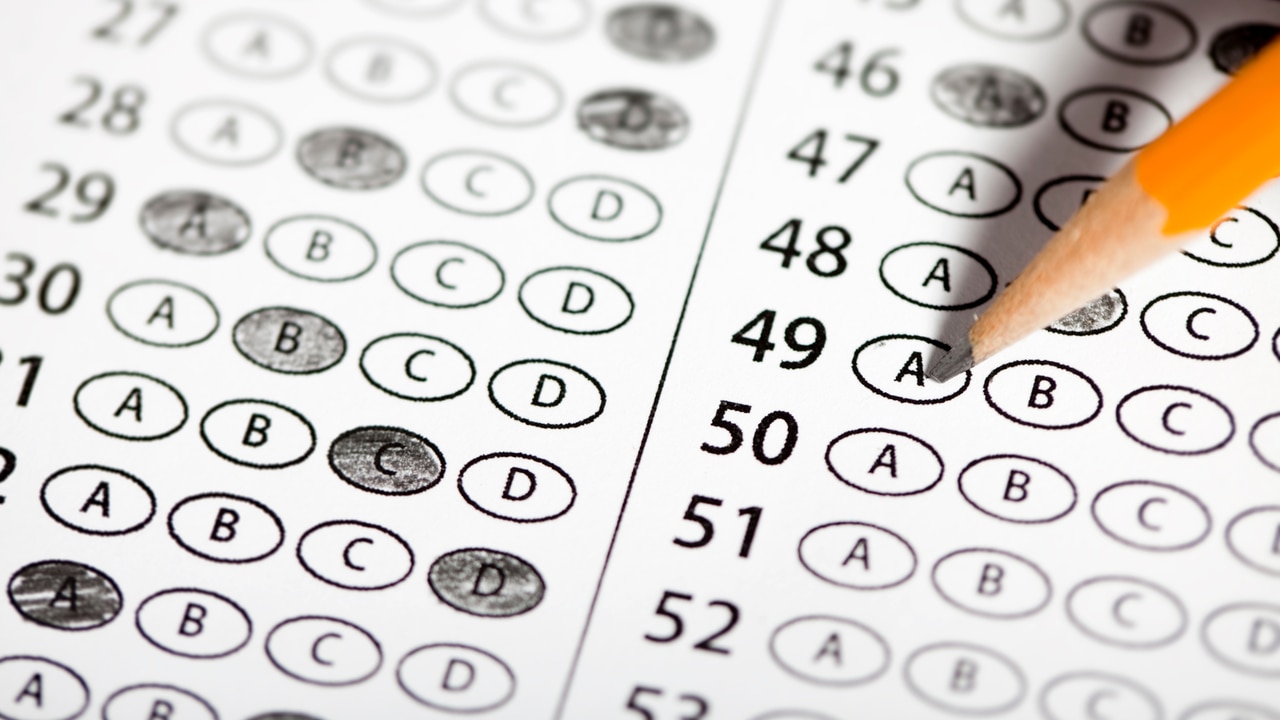
Across party lines, the majority of Bay State residents support school standardized tests, according to a new poll of likely general election voters released Thursday.
Nearly, 63% of respondents said they support a standardized testing requirement for 10th-grade students according to a new poll from the Fiscal Alliance Foundation, a non-profit polling organization.
The Foundation, which polled 750 likely voters from July 21 and 22, found nearly 57% of Democrats, 75% of Republicans and 65% of Independents were in support of exams like the MCAS.
The poll has a margin of error of 3.6% at a 95% confidence level, according to the poll.
“We do polling across the country and there’s a lot of concern about education and whether or not kids are learning,” said Jim Eltringham, the Vice President of Advantage Inc., a polling company based in Washington, D.C. “And so you see that a little bit in the fingerprints of these numbers here.”
The report comes amidst a contentious debate over the administration of the MCAS exam. For the past year, the Massachusetts Teachers Association, the Commonwealth’s largest teachers union, has been calling for the eradication of the tests, citing their racial and economic inequities.
Just before, the Massachusetts Board of Elementary and Secondary Education voted to raise the MCAS standards for the class of 2026 in 2022, Max Page, the union president testified in front of the board, calling the proposal a “fetishized approach to education.”
“The purpose of schools must be to nurture thinking, caring, active and committed adults – parents, community members, activists, citizens,” Page said during the board hearing. The MTA president went on to further say that the standardized tests prove nothing more than the income of the school district and the community.
The union has gone as far as offering support to teachers who decline to administer the exams and providing guidance to parents on how to exempt their children from taking the MCAS.
Despite their attempts, a slew of other education groups dubbed the “Voices for Academic Equity” have countered back, with a report that highlights the benefits of the annual MCAS exam.
“We maintain that MCAS, while in need of targeted revisions, is the primary means for providing students, families, educators and policymakers with the objective, valid, reliable, comparable information essential to determining gaps in outcomes, preparedness for college and career success, and where additional resources are most needed — especially for those who have been and continue to be systemically marginalized: students of color, those with disabilities, English Learners, and students from low-income families,” the report, which was obtained by the Statehouse News Service, said.
Voters may see a ballot question regarding the elimination of the MCAS exam in 2024. Already, Page has said his union has complied polling data that supports their campaign against standardized testing. Data from Echo Cove Research, a research firm in Hamilton, Mass., shows that 73% of respondents were in support of eliminating the graduation requirement tied to the MCAS. The poll, which surveyed 800 voters from June 2 to 11, directly clashes with the polling data from the Fiscal Alliance Foundation.
“Voters also seem extremely solidly behind the idea that students should be required to pass a standardized test in order to graduate high school,” Paul Craney, President of the Fiscal Partners Chamber of Commerce, Inc. said in a statement. “If the teacher’s unions want to pursue changes to this, they will need to convince voters from all major parties.”






